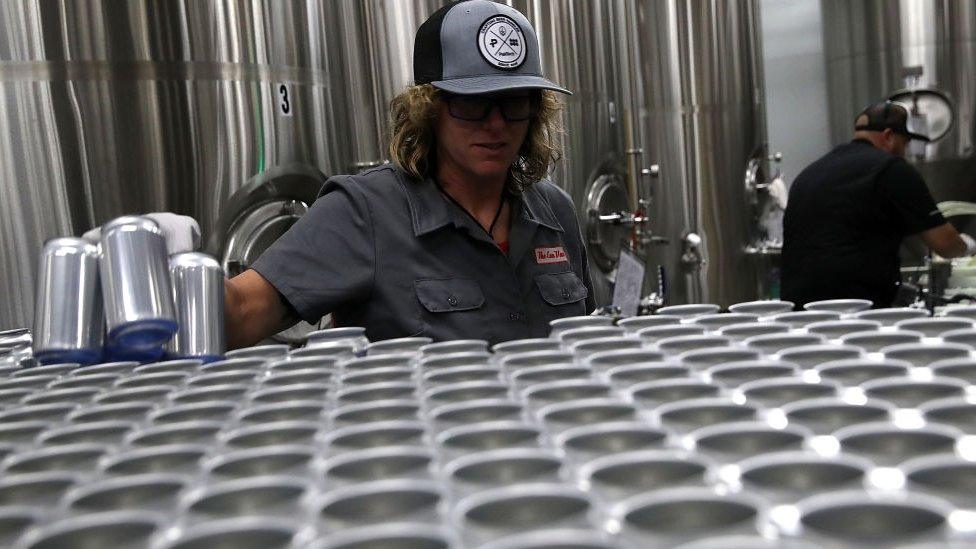US backs off Canadian aluminium tariffs
- Published

The US may reimpose tariffs on Canadian aluminium
The US is dropping plans for a 10% tariff on certain types of Canadian aluminium that President Donald Trump announced just last month.
The US said it was backing off after determining that imports were likely to decline after an earlier surge.
If the shipments do not fall as expected, officials said they would apply tariffs to the excess.
The reversal comes the same day that Canada was expected to unveil its plans for retaliation.
Canadian leaders said they welcomed the US decision and that, in response, they would suspend the plans to impose tariffs on C$3.6bn ($2.7bn, 拢2.1bn) in US aluminium products.
"These measures were an error from the very beginning," said Chrystia Freeland, Canada's finance minister. "This is really a day when common sense has prevailed and that's good news."
Ms Freeland described the US move as "unilateral" and Canada had not agreed to abide by any import thresholds. The government remains prepared to retaliate should the US decide to act on its tariff threat, she added.
"After four years of working with this American administration, we have understood that we have to be ready for anything," Ms Freeland said.听"We have to expect any possibility and we will continue being ready for any possibility."
US-Canada trade tensions
The US first imposed tariffs on foreign steel and aluminium in 2018, citing national security concerns. The move caused furore, especially among the country's traditional allies in Europe and Canada. The Trump administration later exempted certain countries, including Canada, from the levies, which were also controversial within the US.
But at an event in Ohio last month, President Trump announced that he was re-imposing border taxes on certain types of Canadian aluminium, citing a flood of under-priced metal into the country.
The step was "absolutely necessary to defend our aluminium industry," he said.
Canada called the move "unjustified and unacceptable", but the US said the 2019 agreement that exempted Canada from the duties provided for monitoring of the imports and allowed tariffs to be re-imposed should volumes surge.
In Tuesday's announcement that the 10% tariff would be dropped, retroactive to 1 September, the office of the US Trade Representative said it expected imports over the rest of 2020 to decline by 50% from the monthly average in the first seven months of the year.
"If imports exceed 105 percent of the expected volume in any month the United States may re-impose the 10% tariff going forward," the office said, adding that it would review the state of the market with Canadian officials at the end of 2020.
Ms Freeland did not respond directly when asked if Canada was at risk of butting up against the limits outlined by the US. But she noted that the US has said it does not expect to review the decision before November.
- Published7 August 2020